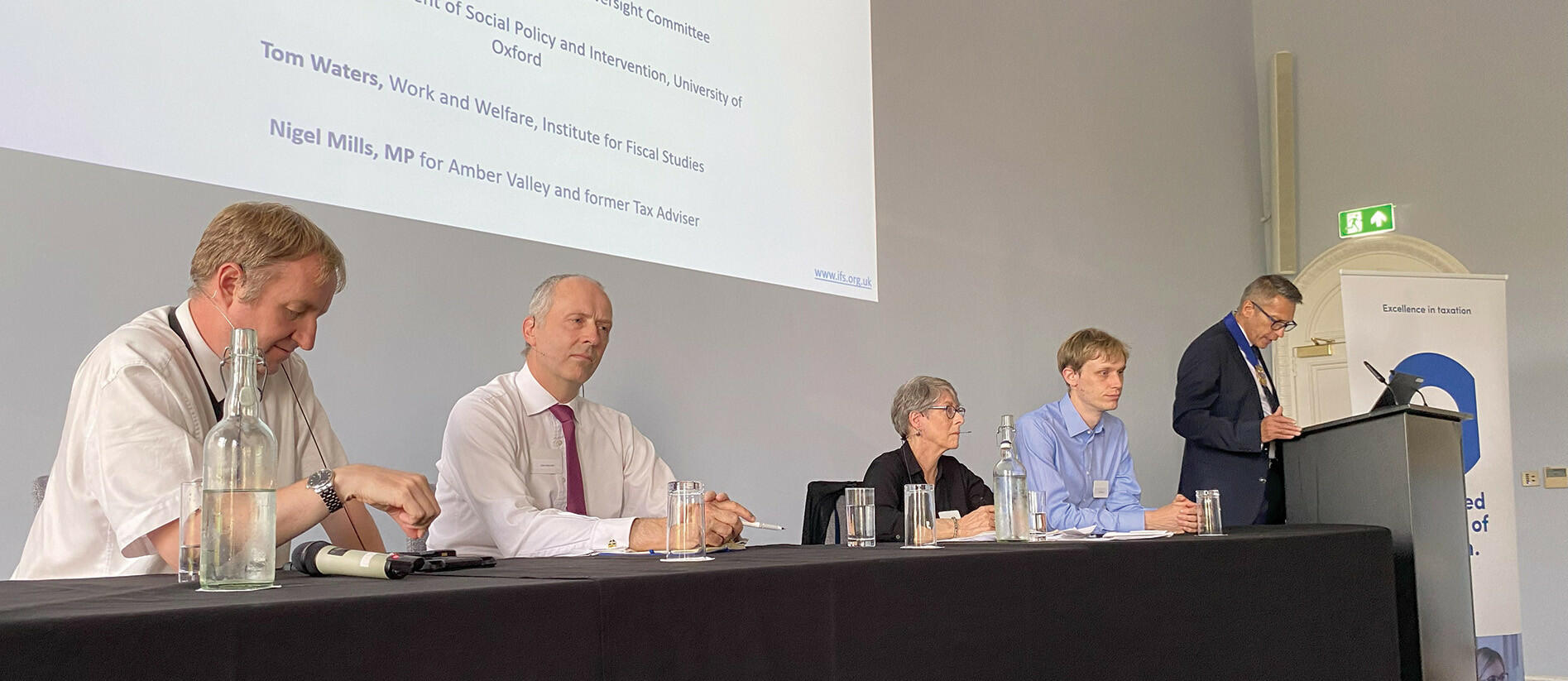Panel debates future of income tax

Panel for the debate (from left to right): Nigel Mills MP, John Barnett, Fran Bennett, Tom Waters, Gary Ashford (chair)
The ‘odd-looking’ income tax system has continued to become more complex in recent years, but its status as a big revenue raiser means it is unlikely to undergo drastic changes, concluded a panel of experts assembled by CIOT and the Institute for Fiscal Studies (IFS).
At a debate titled “Where next for income tax?’, held on Tuesday 27 June, the panel considered how the tax has changed and the impact of charges and reliefs on taxpayers.
Nigel Mills, a Conservative MP and former tax adviser, said income tax and VAT will continue to be the ‘two big staples’, as they are stable and simple to collect, and while there are ‘crazy complexities’ in the income tax system, these can occur for initially ‘sensible’ reasons. Despite this, Mills said that he expects the future income tax system to remain ‘much the same as it is’ with ‘another bit of bell or whistle’ every year.
Mills suggested that the term ‘employed’ should be redefined, as grey areas in this description have put ‘real pressure’ on how income tax is collected, but there remains justification for those who are ‘really’ self-employed to enjoy a beneficial regime.
The IFS’ Head of Income, Work and Welfare, Tom Waters, agreed that income tax is an ‘increasingly odd-looking’ system, with a series of changes since 2009 making the system more complicated, creating cliff edges and providing additional opportunities for avoidance.
Waters pointed out that while, in 1991/92, just 3% of taxpayers paid higher rate tax, by 2028 this is due to be above 10%, or 14% once you incorporate higher marginal rates. He said that a good income tax system should avoid high marginal rates, be simple and transparent, and be decided by policymakers, not inflation.
Waters criticised the lack of transparency in personal taxes, saying it is ‘quite common’ for basic rate taxpayers to think of their marginal rate as 20%, as opposed to 32% once National Insurance contributions are taken into account.
John Barnett, chair of the CIOT’s Technical Policy and Oversight Committee, suggested that many of the current concerns over the system relate to how it is presented. He noted that council tax bills break down the tax to show how much is going to different precepts such as water, social care and police. Income tax also serves other functions, he observed, suggesting that bills could be presented with elements such as ‘social insurance’ (National Insurance) and ‘graduate reclaim’ (student loan repayments) separated out.
Barnett said that Labour’s estimates for how much abolishing the non-dom tax regime will bring into the public purse are based on good research but what we don’t know is what the behavioural impact of the change would be, with people potentially leaving the country.
Fran Bennett, Associate Fellow in the Department of Social Policy and Intervention at the University of Oxford, discussed the high income child benefit charge, which she said was introduced ‘largely for political reasons’.
Bennett also criticised the marriage allowance, calling it a ‘slightly odd recognition of marriage’, as it tends to benefit the higher (usually male) earner. Re-introducing it ‘is a small step in the wrong direction,’ she continued. Instead, government should ‘keep it simple’ and abolish both HICBC and the marriage allowance.
Read the CIOT’s full report on the debate at: tinyurl.com/IT-IFS-23


